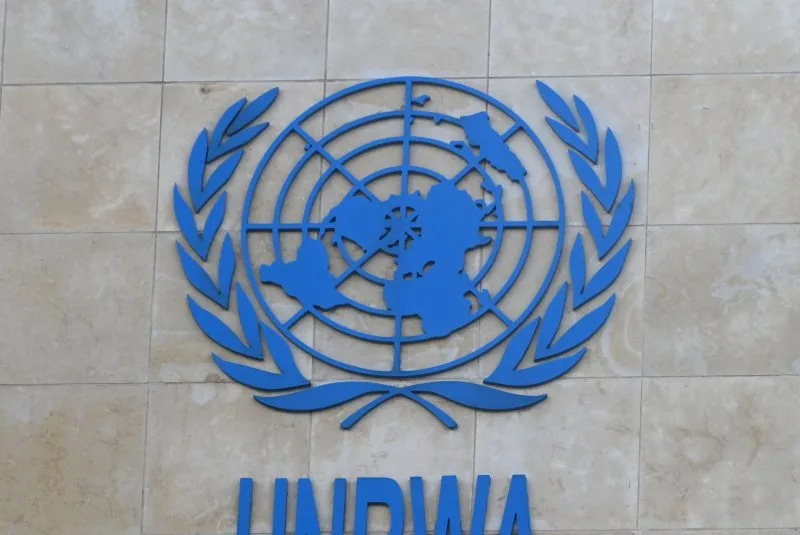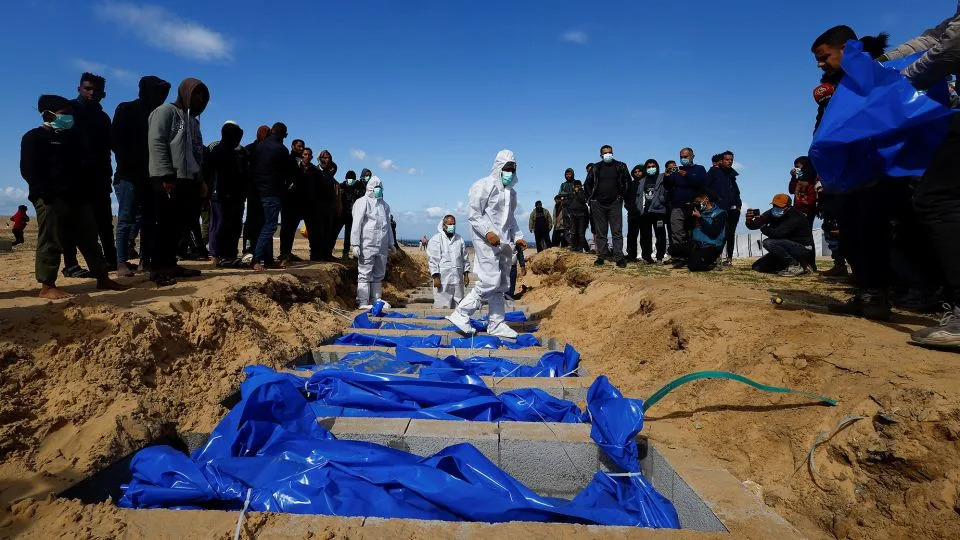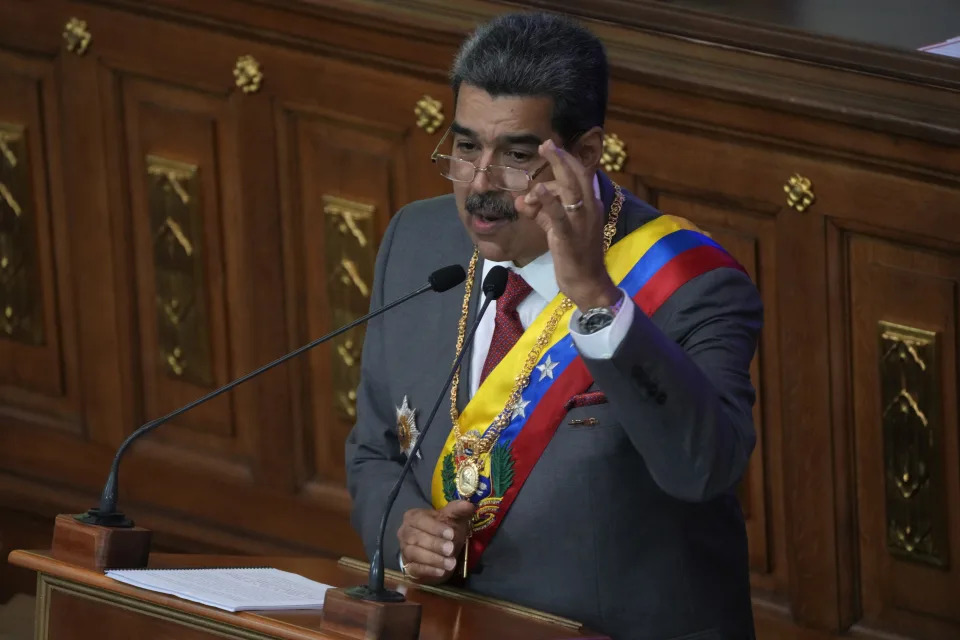MIAMI (AP) — A secret memo obtained by The Associated Press details a yearslong covert operation by the U.S. Drug Enforcement Administration that sent undercover operatives into Venezuela to surreptitiously record and build drug-trafficking cases against the country’s leadership – a plan the U.S. acknowledged from the start was arguably a violation of international law.
“It is necessary to conduct this operation unilaterally and without notifying Venezuelan officials,” reads the 15-page 2018 memo expanding “Operation Money Badger,” an investigation that authorities say targeted dozens of people, including Venezuelan President Nicolás Maduro.
While there's no clear mechanism to hold the United States accountable legally, the revelation threatens to roil already fraught relations with Maduro’s socialist government and could deepen resentment of the U.S. across Latin America over perceived meddling. It also offers a rare window into the lengths the DEA was willing to go to fight the drug war in a country that banned U.S. drug agents nearly two decades ago.
Some of Maduro’s closest allies were ensnared in the investigation, including Alex Saab, the businessman recently freed in a prisoner swap for 10 Americans and a fugitive defense contractor. But until now, it was not clear that U.S. probes targeting Venezuela involved legally questionable tactics.
“We don’t like to say it publicly but we are, in fact, the police of the world,” said Wes Tabor, a former DEA official who served as the agency’s country attaché in Venezuela well before the investigation described in the memo was launched.
Tabor, who would not confirm the existence of any such operations, said unilateral, covert actions can be an effective tool when conducted with proper limits and accountability, particularly in a country like Venezuela, where the blurred lines between the state and criminal underworld have made it an ideal transit point for up to 15% of the world’s cocaine.
“We’re not in the business of abiding by other countries’ laws when these countries are rogue regimes and the lives of American children are at stake,” he said. “And in the case of Venezuela, where they’re flooding us with dope, it’s worth the risk.”
The DEA and Justice Department declined to answer questions from the AP about the memo, how frequently the U.S. conducts unilateral activities and the makeup of the panel that approves such operations.
Venezuela’s communications ministry did not respond to requests for comment. But in recent days Maduro accused the DEA and the CIA — a regular target he uses to rally supporters — of undertaking efforts to destabilize the country. The CIA declined to comment.
“I don’t think President Biden is involved,” Maduro said in a televised appearance this month. “But the CIA and the DEA operate independently as imperialist criminal organizations.”
TARGETING MADURO
The never-before-seen document was authored at the cusp of Republican President Donald Trump’s “ maximum pressure ” campaign to remove the Venezuelan president.
Maduro had just taken an authoritarian turn, prevailing in what the Trump administration decried as a sham re-election in 2018. Within weeks, senior DEA officials plotted to deploy at least three undercover informants to surreptitiously record top officials suspected of converting Venezuela into a narco state.
But because the plan appeared to run roughshod over Venezuelan and international law, it required the approval of what is known as the Sensitive Activity Review Committee, or SARC, a secretive panel of senior State and Justice Department officials that is reserved for the most sensitive DEA cases involving tricky ethical, legal or foreign policy considerations.
It marked an aggressive expansion of “Money Badger," which the DEA and prosecutors in Miami created in 2013 and would go on to investigate around 100 Venezuelan insiders, according to two people familiar with the operation who spoke on the condition of anonymity to discuss law enforcement details.
By authorizing otherwise illicit wire transfers through U.S.-based front companies and bank accounts, the DEA aimed to unmask the Colombian drug traffickers and corrupt officials leveraging Venezuela’s tightly controlled foreign currency exchange system to launder ill-gotten gains. But it expanded over time, homing in on Maduro’s family and top allies, although the president would end up being indicted elsewhere, by the U.S. Attorney’s Office in Manhattan, on drug trafficking charges.
None of the indictments of Venezuelans either before or after the 2018 memo made any mention of U.S. spying. And “to limit or mitigate the exposure of the unilateral activities,” the document advised DEA officials to protect their informants and curtail in-person meetings with targets.
It is not clear if ”Money Badger" is still ongoing.
Since Democratic President Joe Biden took office in 2021, his administration has rolled back sanctions and brought few new prosecutions of Maduro insiders as the Justice Department’s attention has turned to Russia, China and the Middle East. The Biden administration has also sought to lure Maduro back into negotiations with the U.S.-backed opposition, threatening to re-impose crippling oil sanctions if the OPEC nation doesn't abide by an agreement to hold fair and free elections this year.
The operation targeting Maduro’s inner circle is not the first time the United States has conducted law enforcement operations overseas without notifying a host country.
In 1998, Mexico castigated the United States for keeping it in the dark about a three-year money laundering sting known as “Operation Casablanca” — partly conducted on Mexican soil — that implicated some 160 people, including several bank executives.
Notably, legal experts say no international court or tribunal has jurisdiction to hold the United States or its agents accountable for covert law enforcement actions in other countries, and the U.S. Supreme Court has upheld arrests and evidence collected on such missions.
Evan Criddle, a law professor at William & Mary in Virginia, said international law forbids undercover operations such as those described in the memo that take place in another country’s territory without consent. He expects the release of the memo to “cause some embarrassment to the United States, prompt Venezuelan diplomats to register their objections and potentially inhibit future cooperation."
Several current and former DEA officials who examined the memo told the AP they were surprised less by the brazenness of the plan than the agency’s acknowledgement of it in internal documents.
“It’s very rarely done simply because there’s always that potential of it blowing up in the U.S. government’s face,” said Mike Vigil, the DEA’s former chief of international operations. “But Venezuela had already become a rogue state. I think they figured they had nothing to lose.”
RELEASED BY ACCIDENT
The Operation Money Badger memo was never intended to be made public.
It was inadvertently uploaded among dozens of government exhibits to a file share website by the U.S. Attorney’s Office in Manhattan during the bribery conspiracy trial late last year of two former DEA supervisors who helped spearhead the agency’s offensive against the Maduro government. It would be removed hours after an AP reporter started asking about it.
A few days later, over the AP’s objections, the federal judge presiding over the bribery trial took the highly unusual step of sealing the courtroom while the document was discussed, saying that doing so in open court would have “serious diplomatic repercussions.” Neither he nor prosecutors explained what those might be.
Former DEA supervisors Manny Recio and John Costanzo Jr. were eventually convicted of leaking sensitive law enforcement information to Miami defense attorneys as part of a bribery conspiracy. One case they discussed was that of Saab, a Colombian-born businessman who himself would be targeted by “Money Badger” for the alleged siphoning of $350 million from state contracts.
Recio, who later worked as a private investigator recruiting new clients for the defense attorneys, emailed the Venezuelan plans to his personal email account days before his 2018 retirement. He approved the plans as an assistant special agent in charge, while Costanzo, an expert on Venezuela, oversaw the covert sting. Both men are expected to serve federal prison time, joining a growing list of DEA agents behind bars.
“Information like this should never leave government servers,” Michael Nadler, a former federal prosecutor in Miami who also helped coordinate the overseas sting, testified behind closed doors, according to a redacted transcript. “It contains information that provides identifying information regarding people who have agreed to cooperate with the United States in pretty dangerous situations.”
The AP is not publishing the actual memo or identifying the informants to avoid putting them in danger.
‘A SPECIAL RISK’
The memo harkens back to an earlier era of rising hostilities between the U.S. and Venezuela when ambitious federal investigators in several districts – New York, Miami, Houston and Washington – were competing to see who could penetrate deepest into Venezuela’s criminal underworld.
As part of that undeclared race, the DEA Miami Field Division’s Group 10 recruited a dream informant: a professional money launderer accused of fleecing $800 million from Venezuela’s foreign currency system through a fraudulent import scheme.
The informant’s illicit activity in Venezuela positioned him to help the DEA collect evidence against the chief target of the unilateral operation: Jose Vielma, an early acolyte of the late Hugo Chávez who in two decades of service to the Bolivarian revolution cycled through a number of top jobs, including trade minister and the head of Venezuela’s IRS.
Vielma’s alleged partner in crime, according to the DEA document, was another former military officer: Luis Motta, then electricity minister. The DEA memo authorized three informants to secretly record undercover meetings with the targets.
“There is a special risk that the (confidential sources) would be in danger if their cooperation with the DEA is exposed to host country officials,” the memo states. “Potential penalties include imprisonment.”
Whether the risks were worth it remains an open question.
Vielma and Motta were indicted on money laundering charges tied to bribery — not drug trafficking. Both remain in Venezuela and loyal to Maduro, with Vielma serving as a senior lawmaker and Motta’s wife the governor of a major state. But like dozens of Maduro insiders wanted in the U.S., neither is likely to be brought to justice – despite a $5 million reward for Motta’s arrest — unless they travel outside Venezuela.
Zach Margulis-Ohnuma, an attorney for retired Gen. Hugo Carvajal, a former Venezuelan spy chief awaiting trial in the U.S. on narco-terrorism charges in a separate investigation, said “the DEA’s reputation for lawlessness is well-earned.”
“A program that institutionalizes lawbreaking by authorizing DEA agents and informants to violate foreign laws,” he said, “does little to stop drugs from coming into the U.S. while undermining the integrity of the DEA and the reputation of America abroad.”
___
News Researcher Jennifer Farrar in New York contributed.
___
Contact AP’s global investigative team at Investigative@ap.org or https://www.ap.org/tips/












